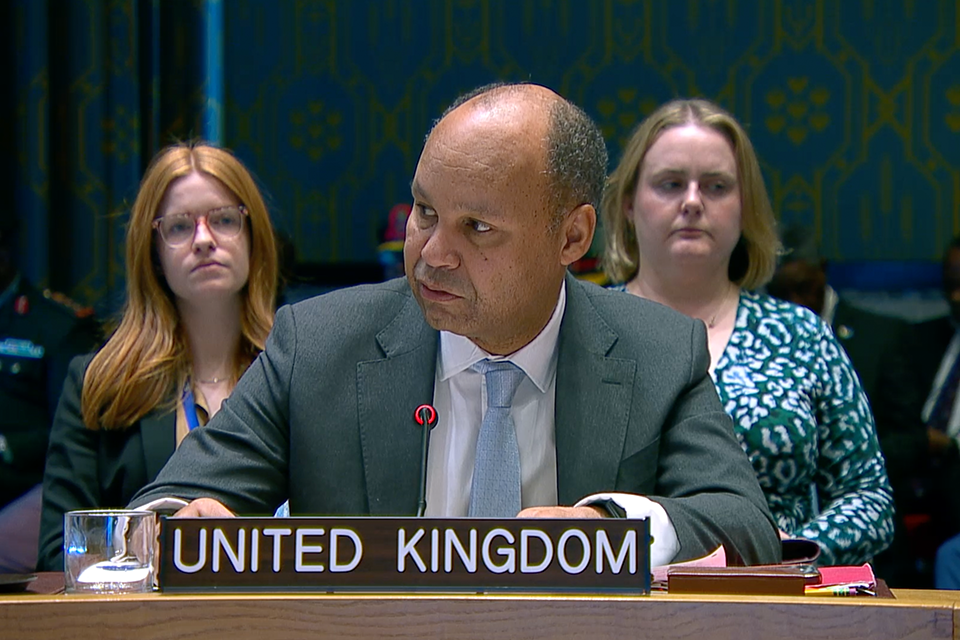Regional security and political cooperation is critical to addressing the threat of terrorism in West Africa and the Sahel: UK statement at the UN Security Council
Statement by Ambassador James Kariuki, UK Chargé d’Affaires to the UN, at the UN Security Council meeting on West Africa.

The United Kingdom shares the concern that Islamic State and Al-Qaeda affiliates are continuing to expand across West Africa and the Sahel, driving instability and committing deadly attacks against civilians. The fuel blockade in Mali imposed by Al-Qaeda-affiliate, JNIM, demonstrates the increasingly sophisticated tactics used by these groups.
I will make three points.
First, regional security and political cooperation is critical to addressing the threat of terrorism in West Africa and the Sahel.
We welcome the increased engagement between states in the region and encourage ECOWAS and AES members to continue deepening dialogue. We also welcome UNOWAS’s efforts to facilitate cooperation.
Regionally-led security initiatives could play an important role in tackling the threat from terrorism. We welcome the work towards a standby force to enable rapid deployment to counter shared threats, and the work to build on the Multinational Joint Taskforce and ECOWAS’ Counter-Terrorism Strategy.
We also note that the landmark Security Council resolution 2719 offers a potential tool through UN support to AU-led peace operations.
Second, the UK remains committed to working with African partners and supporting African-led initiatives to promote stability and security.
UK support includes funding and training for Nigeria’s National Counter-Terrorism Centre, Côte d’Ivoire’s Counter Terrorism Academy, and the Regional Intelligence Fusion Unit, which supports the Multinational Joint Taskforce. These initiatives, working together, help strengthen intelligence sharing and regional resilience.
We also encourage countries in the region to choose security partners carefully to avoid worsening the threat posed.
Third, to defeat terrorism and insecurity, it is necessary to tackle the drivers.
This includes improving governance, reducing poverty, countering disinformation, protecting civic space and tackling climate change. Without progress in these areas, conflict and terrorism will continue to destroy local communities and disrupt livelihoods, with disproportionate harm to women and children. The UK remains committed to working with partners to address these drivers.